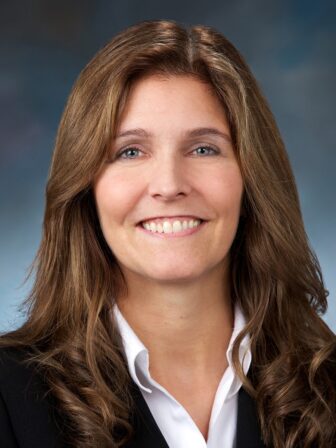Report finds $2.5 million in uncollected fees over last decade
By Kelsey Turner / InvestigateWest
When Washington passed a law in 2013 requiring people convicted of buying sex to pay more fees to the courts, Jeri Moomaw had high hopes.
It seemed like a win-win to Moomaw. These fees — potentially adding up to hundreds of thousands of dollars per year — would come from the pockets of those buying sex from adults and children and be redirected toward services for human trafficking survivors.
“The premise behind the bill is for buyers to pay for the harm that they’re doing,” said Moomaw, executive director of Innovations Human Trafficking Collaborative, an Indigenous and survivor-led nonprofit based in Olympia that serves trafficking survivors. Human trafficking generates an estimated $150 billion globally every year, Moomaw noted. “It is definitely run by demand.”
At first, it seemed to be working, said Rep. Tina Orwall, who sponsored the 2013 legislation. In 2014, the city of Kent used $10,000 of penalty fees for a transitional housing program for homeless women. And in 2015, the city donated $15,000 of fee revenue to a local nonprofit for human trafficking victims, according to the Washington State Department of Commerce.
But a decade later, most Washington courts aren’t ordering sex buyers to pay any fees at all. In 2023, only a quarter of the 64 courts that convicted people for sexual exploitation crimes ordered those individuals to pay fees, according to an annual report by the state Department of Commerce. That’s more than $2.5 million over the last decade that courts could have levied but did not.
“Over time, we did see a pattern of a lot of courts not collecting the money or not having clarity on how the money was being used,” said Orwall, a Democrat who represents District 33 in King County. She’s now working with the state auditor’s office to examine where the money is going, expanding on the annual Commerce report.
Part of the problem comes down to a lack of awareness among judges and prosecutors that these fees are mandatory and cannot be waived, said Ben Gauen, an attorney who led King County’s trafficking response as a senior deputy prosecutor for five years until January. King County is the only county that has consistently ordered these fees as state law requires, according to the Commerce Department.
This lack of awareness is coupled with a larger nationwide shift away from court-ordered fines and fees in recent years, judges and prosecutors say. Washington’s legal fines and fees have been shown to disproportionately burden low-income Black, Indigenous and people of color by saddling them with debt that they can’t afford, according to a 2022 report by the Washington State Supreme Court Minority and Justice Commission. To address this disparity, the state Legislature passed laws in 2018 and 2022 allowing judges to waive certain fines and fees for people unable to pay — which is most people, at an estimated 80% to 90% of Washington defendants, according to the report. These waivers don’t apply to fees for sexual exploitation crimes, which can sometimes be reduced but can’t be waived entirely.

Rep. Tina Orwall, D-Des Moines, sponsored 2013 legislation requiring people convicted of buying sex to pay more fees to the courts. (Washington State Legislature photo)
Unlike most crimes, state and federal data show that the large majority of people buying sex are white men with jobs. From 2004 to 2013, almost all people charged in federal courts for commercially sexually exploiting children were men and 82% were white, according to the federal Bureau of Justice Statistics. And in King County, 82% of people charged for commercially sexually abusing kids from 2013 to 2021 were employed and working in industries like labor, retail, business or tech, according to the King County Prosecuting Attorney’s Office.
“We know statistically that these are men of relatively great privilege, certainly more than the traffickers,” Gauen said. “They can pay these fines.”
Follow the money
Under state law, at least half of the fees collected for sexual exploitation crimes must be spent on prevention programs, like “john schools” for offenders and rehabilitative services for trafficking survivors. As reports of suspected human trafficking and online child sexual exploitation continue to rise across the country, it’s a source of funding that service providers like Moomaw say they desperately need.
The revenue can help provide housing, mental health services and substance abuse assessments for trafficking survivors, Moomaw said.
“It would allow us to serve more people and not have waiting lists, or have people that we are not able to help,” she said.
The other half of the fees are supposed to go back to local law enforcement for efforts to reduce the commercial sale of sex, like sting operations to catch buyers. Police departments in King County have used fee revenue to cover costs like hotel rooms used in sting operations, overtime for police officers and fake online advertisements for commercial sex, according to the Department of Commerce.
“Our hope was that it would deter buyers and that it would increase the revenue that is going into law enforcement to do ‘end demand’ buyer operations,” Moomaw said.
But instead, Washington’s arrests and convictions for sexual exploitation crimes have fallen steeply in recent years, dropping from 1,439 arrests and 490 convictions in 2017 to 749 arrests and 218 convictions in 2023 — a 48% and 56% decrease, respectively, according to the Commerce report.
Though state law allows judges to reduce some fees for sexual exploitation crimes by up to two-thirds if a person can’t pay, courts can’t waive them entirely. Yet apart from King County, most courts aren’t obeying the law, the Commerce report shows.
The Kitsap County Superior Court, for example, had two convictions for commercial sexual abuse of a minor in 2023, each of which should’ve carried a $5,000 fee. And the Spokane County Superior Court had four convictions for promoting prostitution in the second degree, a felony with a $3,000 fee for a first offense. Yet neither court imposed any fees.
The Lewis County Superior Court had six convictions for sexual exploitation crimes in 2023, three of which involved people buying sex from kids. It should’ve added up to $15,150 in fees. But the court didn’t order any.
When asked why courts aren’t imposing the fees, Lewis County Superior Court Judge James Lawler suggested that it had to do with the Legislature’s directive to waive fines and fees for people who can’t afford them. Because courts are waiving most fines and fees, and because convictions for sexual exploitation crimes are fairly uncommon, judges and prosecutors might not know that fees in these particular cases can’t be waived, Lawler said.
“If a case came before me, I may not be aware of a specific crime that there’s a mandatory fine,” he said. “It could have very well been that the prosecutor making the recommendation wasn’t aware of it either.”
Generally, there are no consequences when courts don’t impose mandatory fees. If a judge is deliberately ignoring a law, a complaint can be filed with the state’s Commission on Judicial Conduct, which could lead to a recommendation that the Washington Supreme Court suspend or remove the judge from office. But this is a rare occurrence, according to the commission’s data.
The Washington State Auditor’s Office plans to dig further into this issue. The audit, however, will be limited to trafficking crimes, according to the office. It wouldn’t include crimes of buying sex like commercial sexual abuse of a minor, or CSAM, and patronizing a prostitute, which Gauen said greatly undercuts the audit’s usefulness.
“Most of those guys are indigent, the traffickers,” Gauen said. “You have to include the CSAM buyers and you have to include patronizing a prostitute. Because that’s where the money is actually coming in, is from these buyers.”
Supply and demand
When Washington increased the fees for convicted sex buyers and traffickers in 2013, not all advocates were on board. Some sex workers’ rights organizations pushed back against the legislation, arguing that cracking down on buyers would endanger adult sex workers by causing them to work in more criminalized and unregulated spaces. This debate continues today.
“It’s not going to end the demand,” said Adrianna Suluai, a former Seattle sex worker and current policy director at UTOPIA Washington, a grassroots organization led by queer and trans people of color in South King County. “It’s just going to continue to put more risks and harm on sex workers because they will now have to be pushed further into underground economies to work.”
In 2018, for instance, when federal law enforcement agencies shut down Backpage.com — a digital marketplace for buying and selling sex that anti-trafficking experts called the world’s largest sex trafficking website — sex workers and trafficking survivors say it became harder to screen clients to ensure they weren’t dangerous.
Similarly, at the beginning of the COVID-19 pandemic, Seattle’s demand for in-person sex work naturally decreased as people socially distanced from one another, said Audrey Baedke, co-founder of Real Escape from the Sex Trade, which serves trafficking victims in King County and has received funds from the criminal penalty fees.
“Our clients then had to take whoever was willing to meet with them, and the prices dropped dramatically,” Baedke said. “They had to do practices like not using a condom or other services that they didn’t typically feel comfortable with.”
But for Baedke and other anti-trafficking advocates, the solution to keeping trafficking victims safe is not to ease up on the demand that drives the industry. Rather, in addition to targeting demand, it requires more services like transitional housing and substance abuse treatment for survivors — services that the criminal penalty fees are supposed to help fund.
Sting operations, which are also supposed to be funded by the fees, are a controversial practice as well. Sex worker advocates argue that arresting clients leaves sex workers vulnerable to arrest, too. But many trafficking survivors argue that they’re necessary to deter buyers from exploiting trafficking victims.
SarahAnn Harris Hamilton, program coordinator with the Seattle-based nonprofit Organization for Prostitution Survivors, thinks that for stings to truly benefit trafficking victims, there needs to be more support for survivors.
“I think that sting operations could possibly be helpful, but what happens after it’s done? There are no services to match,” said Hamilton, who does outreach on Seattle’s Aurora Avenue North, an area known for high rates of sex work and trafficking. “I’ve seen police leave girls on the side of the road after a sting or after busting down a door. Like, what now? She’s not safe at all.”
Ordering buyers to pay Washington’s mandated fees isn’t a silver bullet for reducing trafficking, but Moomaw thinks that in terms of limiting demand and keeping survivors safe, it’s a good place to start.
“I was really hoping that the buyers could be held accountable,” Moomaw said. “The consequences of not collecting the fees are that the police don’t have the resources, and our organizations are not getting the resources that the bill intended.”
FEATURED IMAGE: Law enforcement in the Northwest have prioritized targeting sex buyers rather than charging sellers with prostitution in recent years. (Moriah Ratner/InvestigateWest)
InvestigateWest (invw.org) is an independent news nonprofit dedicated to investigative journalism in the Pacific Northwest. Kelsey Turner can be reached at kelsey@invw.org.



